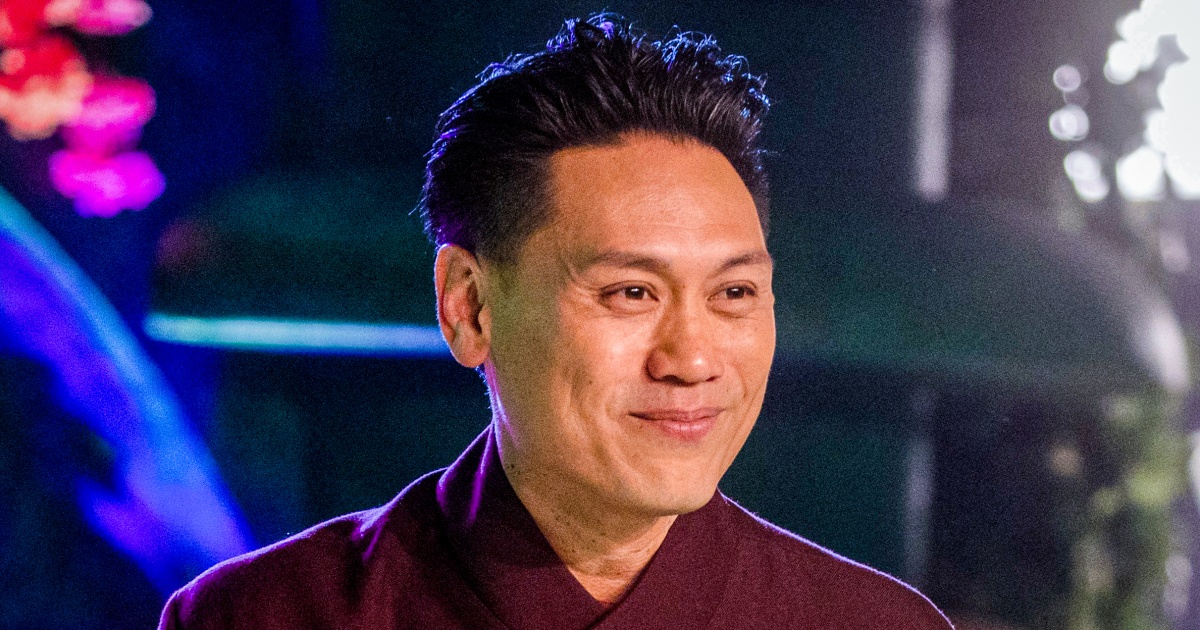“Wicked: For Good” director Jon M. Chu has built his career on turning stories about outsiders into celebrations of belonging. But in an interview with “Meet the Press” that aired Sunday, the filmmaker opened up about following his own yellow brick road: one marked by rejection and resilience.
“My whole life, I’ve been trying to prove myself, that I can be here, that I can be in this business,” Chu told “Meet the Press” moderator Kristen Welker. “And I think I was always searching for that kind of validation. But through the process of making movies and doing it over — and I had a whole long career before ever doing ‘Wicked’ — I think I got killed many times.”
“Wicked: For Good,” the second chapter in his adaptation of the hit Broadway musical, will hit theaters on Nov. 21. It is loosely based on Gregory Maguire’s 1995 novel — a creative reimagining of “The Wizard of Oz.” The new film is produced by Universal Pictures, part of NBCUniversal.
“Wicked,” which Chu also directed, is the most profitable Broadway film adaptation of all time and was nominated for 10 Oscars, of which it won two.
Chu says he found that lesson of authenticity reflected in his film’s two main characters — Elphaba and Glinda — and in the actors who played them, Cynthia Erivo and Ariana Grande.
Glinda, played by Grande, and Elphaba, played by Erivo, form an unlikely friendship, each challenging the other to view life from a new perspective and defy the expectations their world pins onto them.
“I learned so much from Elphaba and Glinda and from Cynthia and Ariana,” he said. “I think I’ve gotten to let go of that idea of proving yourself.”
When Chu was just 23, fresh out of the University of Southern California’s film school, he landed two movie deals. Both collapsed before production began.
“There were days where I was like, ‘Am I a fool?’ … I would go into USC — they asked me to speak at USC, because this is the guy that just came out of college and got his deal … and I sit in the loading dock, and I’m watching all these kids excited about making a movie. And I feel like nothing. I feel like — and I just started to weep. It was probably the first time I cried in 20 years or something at that point. I was like, ‘These people think I’m a complete fake.’”
Years later, after gaining experience and completing a variety of film projects such as “Step Up 2” and “Now You See Me 2,” Chu found a story that changed the trajectory of his career and became a watershed moment for Asian American representation on screen: “Crazy Rich Asians.”
“‘Crazy Rich Asians’ was great, because it cracked the door open or showed a path for the other people who needed to invest money in this. I’m not sure if it was for us,” he said. “I think it was for everyone else to say, ‘Oh, these actors have value.’”
“Crazy Rich Asians” was the first major Hollywood studio film to feature a majority-Asian cast in 25 years and was the highest-grossing romantic comedy of the decade. Chu says he sees his film as an “avenue” for other Asian American filmmakers to share aspects of their own experience: “Let’s own our stories and tell every version of our story we could.”
However, Chu said that more representation “takes time.”
“I think we have to be careful to expect too big of a change too quickly,” he said. “Of course we want that, but to change culture, it takes time. You cannot force people to do that.”
Chu also says he remains deeply committed to the movie theater experience, despite the growth of streaming.
“I think movies are one of our last analog spaces. It’s a space that we have to protect,” Chu said. “You have to make a choice to go in. You have to leave your phone … and then you have to just sit back in the dark and watch something for two hours through someone else’s perspective. That is maybe one of the last spaces we have to do that. It is a part of our culture.”
And that, he says, is what “Wicked” is all about.
“Even though it’s a fantasy, even though it’s a fairy tale, it’s our access into a human experience. What does it feel like when you believe so deeply, when you love so deeply, when you sacrifice everything? That we still have the capacity to do that,” Chu said. “It’s what my parents taught me. It’s what America has taught me.”

